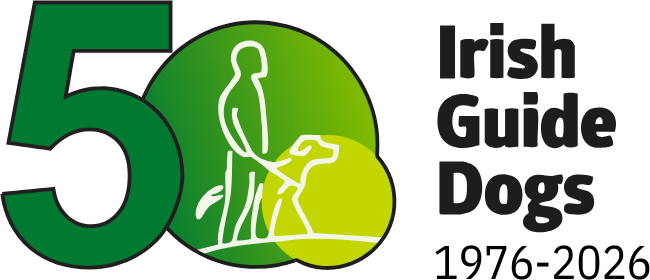)
November 2024, I celebrated 30 years of being blind. A far cry from that November night so long ago on the fifth floor of Sligo General Hospital, in a bathroom where a terrified 16-year-old girl sat believing her life was over. I didn’t know what my future would hold. I wasn’t sure I even had one.
If you take a moment to think about it, how would you cope if you lost your sight? Would you feel helpless? Hopeless? Would you feel isolated, angry, lonely, resentful? I felt all of those things and more.
Sight loss is a deeply personal journey, one often taken alone. The well-meaning platitudes like “God doesn’t give challenges to weak people,” or “It could be worse,” or “There are people worse off than you,” didn’t help. They only deepened the anger, the grief, and the resentment I was already drowning in.
I can’t pinpoint the moment I began to see the light at the end of the tunnel. What I can tell you is that it took time. Some painful things were said to me, things that forced me to leave home and move to Sligo. I still hadn’t accepted my blindness—not really. Sure, I learned to use a white cane, but when I went home, I’d fold it up and take someone’s arm instead, hiding who I was. I felt ashamed—ashamed of not being “whole.”
Still, I pushed forward. I learned to use a computer, I sat my Leaving Cert, I went to college, and I even spent three unforgettable months in Alaska. But even with all that, I still felt like I didn’t belong in this sighted world. I turned to alcohol, thinking it made me more confident and accepted. Looking back, I realise how false that was. Alcohol masked everything—but healed nothing.
In 2007, I took a leap and applied for a guide dog. My confidence was buried somewhere below the Earth’s core. I didn’t believe I could work a dog, let alone be responsible for one. But then came Bangles—my first dog. A hyper, headstrong whirlwind of a dog who didn’t exactly fit the image of the “perfect pooch.” Bangles was brilliant at her job, but her behaviour? More hound from hell than hero. And yet… it was Bangles who led me to truly accept my blindness. I stopped hiding. I stopped folding myself away like I did with my cane. Bangles came with me everywhere—even home. There was no hiding anymore.
)
Life didn’t magically become easy. I still had my low days. But Bangles? She made me laugh. Whether she was stealing pastries from a bakery, sneaking something out of someone’s pocket, or boldly swiping food from my plate—she had no shame, no guilt, just joy. And in that chaos, I found healing.
Bangles retired in 2015 and along came Rhum. By then, I had done a lot of work on myself. My mental health had improved, and I was more open, more honest, more me. Rhum was smart, calm, steady—she only let me near the bakery when I pleaded. She even brought out a new side of me: my creativity. With her by my side, I discovered a love for creative writing. Both Bangles and Rhum have now crossed the rainbow bridge, but their legacy still walks with me every day.
Then came Sasha.
In February 2021, during one of the darkest times of my life—still grieving Rhum, still in the grips of COVID restrictions—I began the strangest guide dog training ever: from home. Sasha entered my life when I was at my lowest. Our first meeting felt awkward. She stayed the night, and it felt like hosting a house guest you had nothing in common with—not even the same species. I lay awake wondering if I could really bond with this dog.
But the next morning, she made the decision for me. She hopped up on my bed, licked the top of my head, and lay down beside me. That was the moment I knew. She had already chosen me. And now, four years later, Sasha is my lifeline. She makes me laugh every single day. She’s spoiled, demanding, entitled, and allows me one bakery trip a week.
Irish Guide Dogs don’t just give independence. They give confidence. They give companionship. They give normality. They gave me the tools to accept my blindness, to accept myself, and to find my place in this little corner of the world.
So much has changed since that night in 1994. Technology now allows us to read text with AI, describe photos, start a hoover or an air fryer—all with our voice. It’s amazing. But the biggest change? Me.
These 30 years have taught me that I’m stronger than I ever believed. I wouldn’t go back to having sight—I love my life as it is. I’m grateful for my three girls: Bangles, Rhum, and now Sasha. Losing sight may have felt like the end, but in so many ways, it was just the beginning.
Yes, losing sight sucks. But the one thing you’ll always have is your blind family. We build each other up. We laugh at the blind moments. We understand each other in ways no one else can. And that makes us a family. Anything is possible—we might not all climb Mount Everest, but me? I can walk on a treadmill with a Hable One braille keyboard, a backpack on my back, and a monkey sticking out of it—and that’s my Everest.
Irish Guide Dogs change lives. And they completed mine—one paw at a time.

:format(webp)/f/106081/740x212/6ba644dc68/jackie-and-sashav3.jpg)